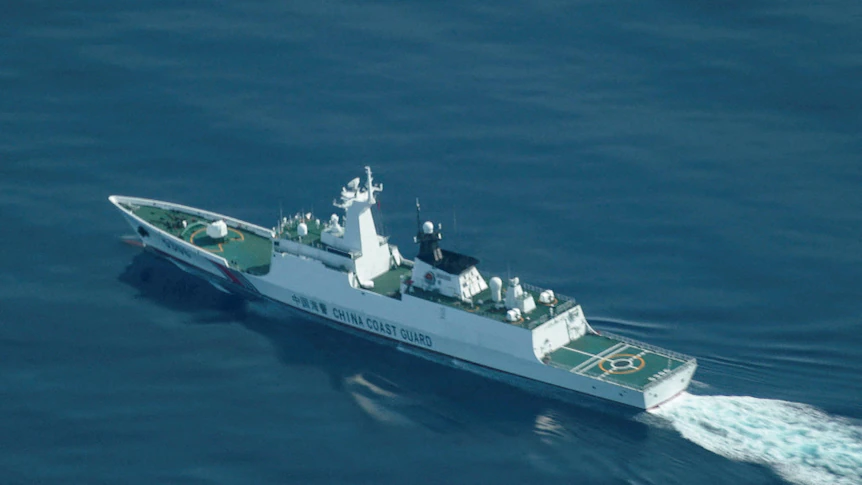By Toby Mann
Copyright abc

China’s coastguard has fired water cannons at Philippine ships near the disputed Scarborough Shoal in the South China Sea, and accused Manila of an “illegal” intrusion and the ramming of one of its vessels.
The confrontation comes a week after China approved plans to turn the shoal into a national nature reserve.
Tuesday’s encounter at the 150-square-kilometre chain of reefs and rocks involved more than 10 Philippine ships, Gan Yu, a spokesperson for China’s coastguard, said.
He accused the vessels of having “illegally invaded China’s territorial waters of the Scarborough Shoal from different directions”.
He said a Philippine coastguard vessel had “disregarded solemn warnings from the Chinese side and deliberately rammed a Chinese coastguard vessel”.
“The China coastguard lawfully implemented control measures against the Philippine ships,” Mr Gan said.
The control measures included verbal warnings, route restrictions and water cannon spraying.
A spokesperson for the Philippine Maritime Council said the Chinese coastguard’s statement contained “no truth”, dismissing it as “another case of Chinese disinformation and propaganda”.
The Scarborough Shoal is one of the most contested marine areas in Asia.
It lies about 200 kilometres off the Philippines and inside its exclusive economic zone.
It is coveted for its bountiful fish stocks and a stunning turquoise lagoon that provides safe haven for vessels during storms.
China’s nature reserve more about power than environmentalism
Simmering tension over the shoal has led to diplomatic rows in recent years, but no incidents have escalated into armed conflict at the site.
Beijing and Manila have accused each other of provocations and trespassing.
Analysts have said Beijing’s plan to categorise the shoal as a nature reserve amounted to trying to take the moral high ground in the dispute over the atoll, known as Huangyan Island in China and Panatag Shoal in the Philippines.
When it announced the nature reserve last week to condemnation from the Philippines and wider international scepticism, China said it would preserve a 3,524-hectare coral reef ecosystem.
It covers the entire north-eastern side of the atoll, close to the only entrance for larger vessels.
Shortly after it was announced, security expert Jennifer Parker predicted China would use its establishment of the nature reserve to push Filipino vessels out of the Scarborough Shoal.
Lowell Bautista, from Western Sydney University’s School of Law, said China’s announcement was about “power and control”, not environmental stewardship.
The dispute around the Scarborough Shoal is part of a wider contest over sovereignty and fishing access in the South China Sea, through which more than $4.5 trillion worth of trade passes each year.
China claims almost the entire South China Sea, overlapping the exclusive economic zones of Brunei, Indonesia, Malaysia, the Philippines and Vietnam.
Unresolved disputes have festered for years over ownership of various islands and features.
In 2016, the Permanent Court of Arbitration in The Hague ruled that China’s sweeping claims in the region were not supported by international law, a decision that Beijing rejects.
ABC/Reuters



